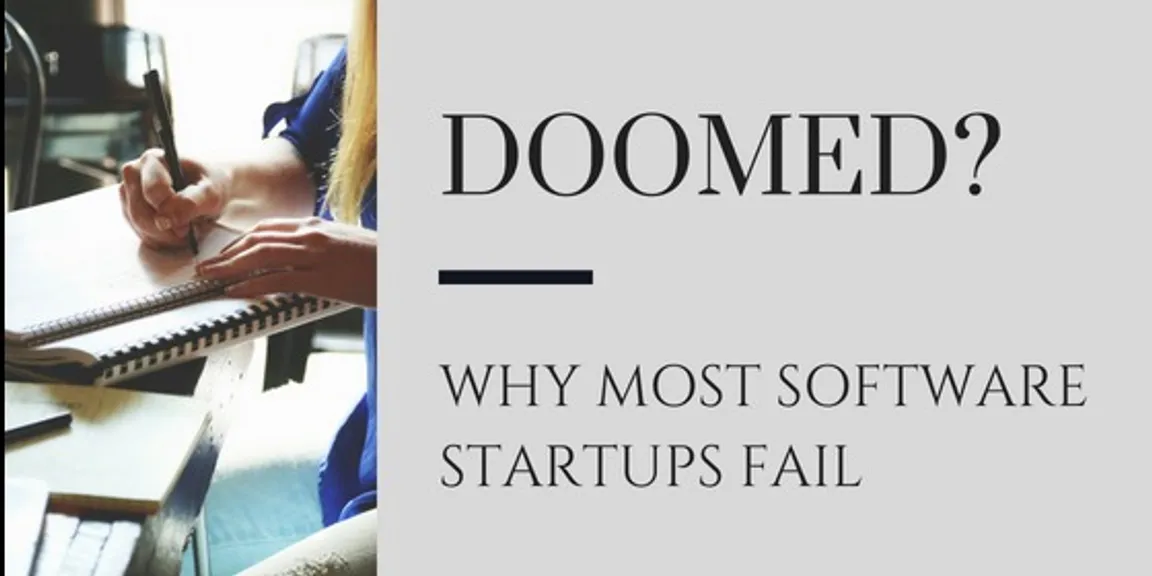

Why most software startups fail
Software startups are founded with big dreams. Visionary concepts with practical applications, in many cases designed to disrupt industry stalwarts. People looking to help others save time and money, or solve complex (or simple!) problems through a piece of software, whether a mobile app, web solution, or enterprise application.

But the majority of startups are doomed to failure. Across the UK, just 53.7% of UK-owned businesses started in 2013 survived 3 years. The internet is littered with stories of startups that went bust. Despite the overall business stats, London remains the 3rd largest tech startup ecosystem, behind Silicon Valley and NYC – so at least there’s a bit of safety in numbers to cushion the blow.
There are plenty of reasons that startups fail
Startups fail for many, many different reasons. Here are some of the more common causes behind these sunken ships:
· Couldn’t find a product-market fit (CB Insights mentions this as the reason 42% of startups in their survey failed)
· Changing legislation
· C-Suite arguments/changes/wrong fit
· Founder leaving
· Not enough funds
· Overspending
· Marketing issues
· Competitors expand too quickly and/or have more capital to support them – or are just better…
· Investors jumping ship
· Market shifts
· Not pivoting when it was required
· Pricing issues
· Inability to scale
Software startups are more vulnerable to technology issues
Software startups have even more riding on the tech side of things. Software complexity in particular can throw a real spanner in the works - if you don’t have a very experienced and knowledgeable team to architect and then develop a solution. Hacking isn’t going to cut it here. Here’s where software startups typically fall over:
· Incompetent CTO
· Software development time/cost blow-outs
· Incompetent programmers
· Choosing the wrong tech stack (if it goes obsolete or isn’t well-enough supported)
· Poor UI/UX
(Read 253 startup failure insights at CB Insights and old-but-still-as-relevant-as-ever Paul Graham’s Startup Mistakes for more)
The number one reason that software startups fail
So what’s the core reason that that most software startups fail? It’s not learning from other people’s mistakes. The software startup graveyard is massive. Which means it is the perfect place to learn what not to do.
Catch up for lunch with a failed founder and glean those nuggets of info. Read Autopsy, the startup failure database. Research all the reasons that startups fail. From this analysis, you can develop strategies that help mitigate the risk of it happening to your startup.
· Failed product-market fit? Comprehensive, structured market research that follows best-practices.
· Funding struggles? A good salesperson with experience with VC (not necessarily a founder)
· Incompetent programmers? A rigorous selection process
· Wrong tech stack? Study the options in detail, as well as newcomers
· Marketing issues? Clear marketing strategy (or a good agency to do it for you)
· Overspending? Clever budgeting software / accountant
· Competition? Setup Google Alerts and other data mining tools to help spot potential competitors and their plans before they get the jump on you
If you have a clear business strategy, with an aligned IT strategy, and multiple risk mitigation plans in place, then you’ll have a better chance at success than your cohorts. You’ll need to feed these strategies and update as your startup progresses.
While there can always be curveballs – maybe your CFO somehow manages to embezzle all your funds and run off to Mexico – by knowing in advance what might go wrong, you can more easily follow contingency plans instead of scrambling.





